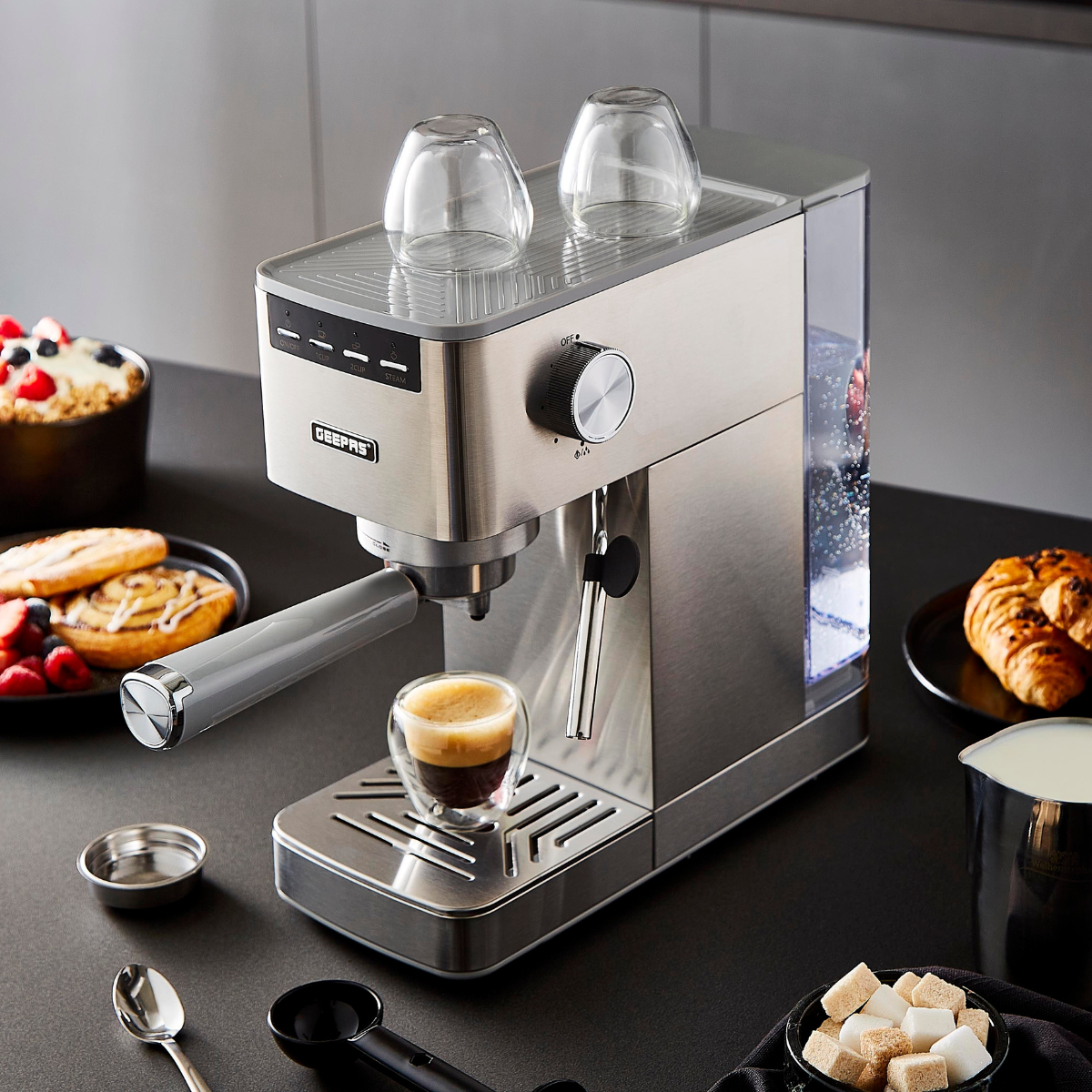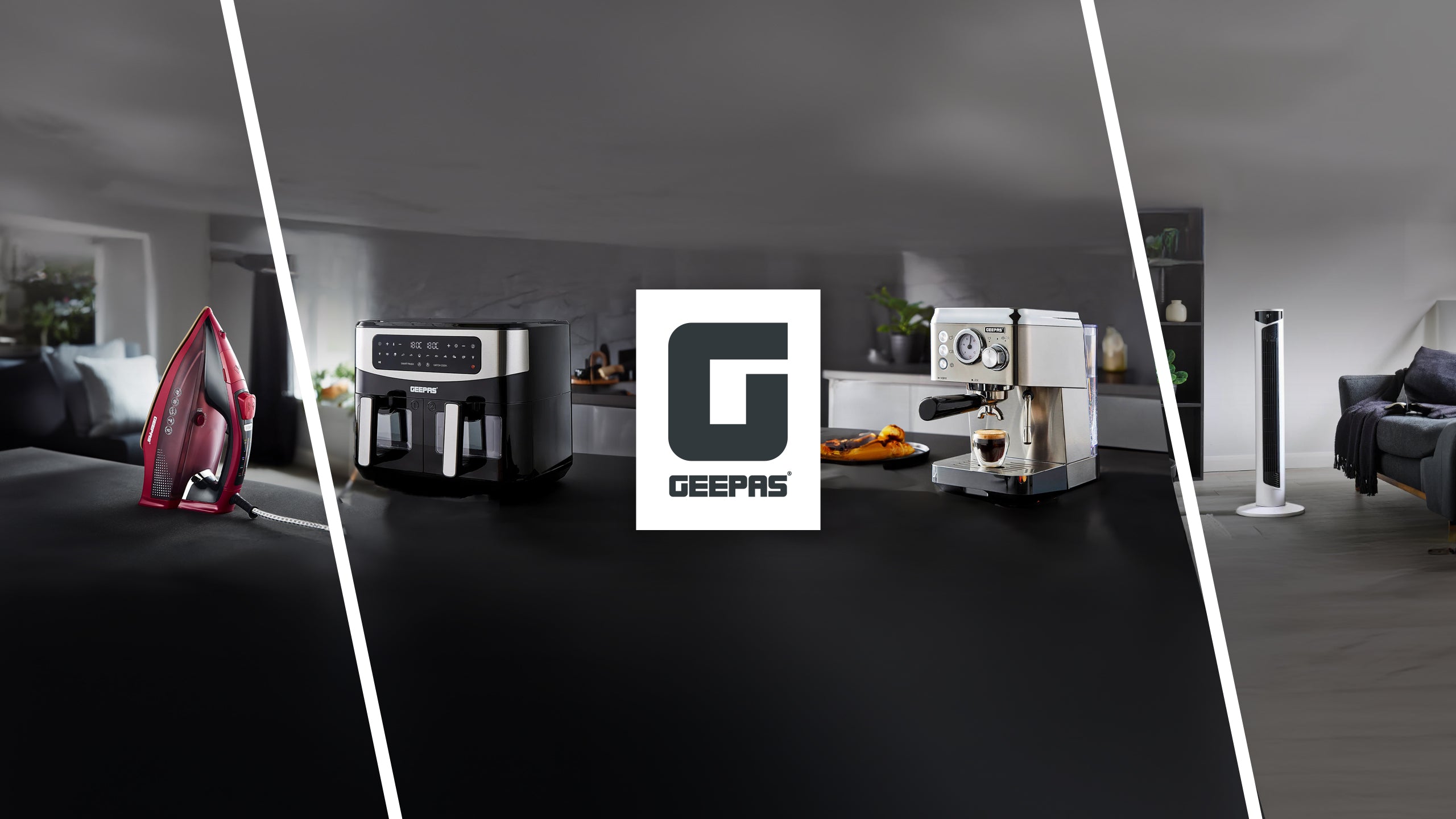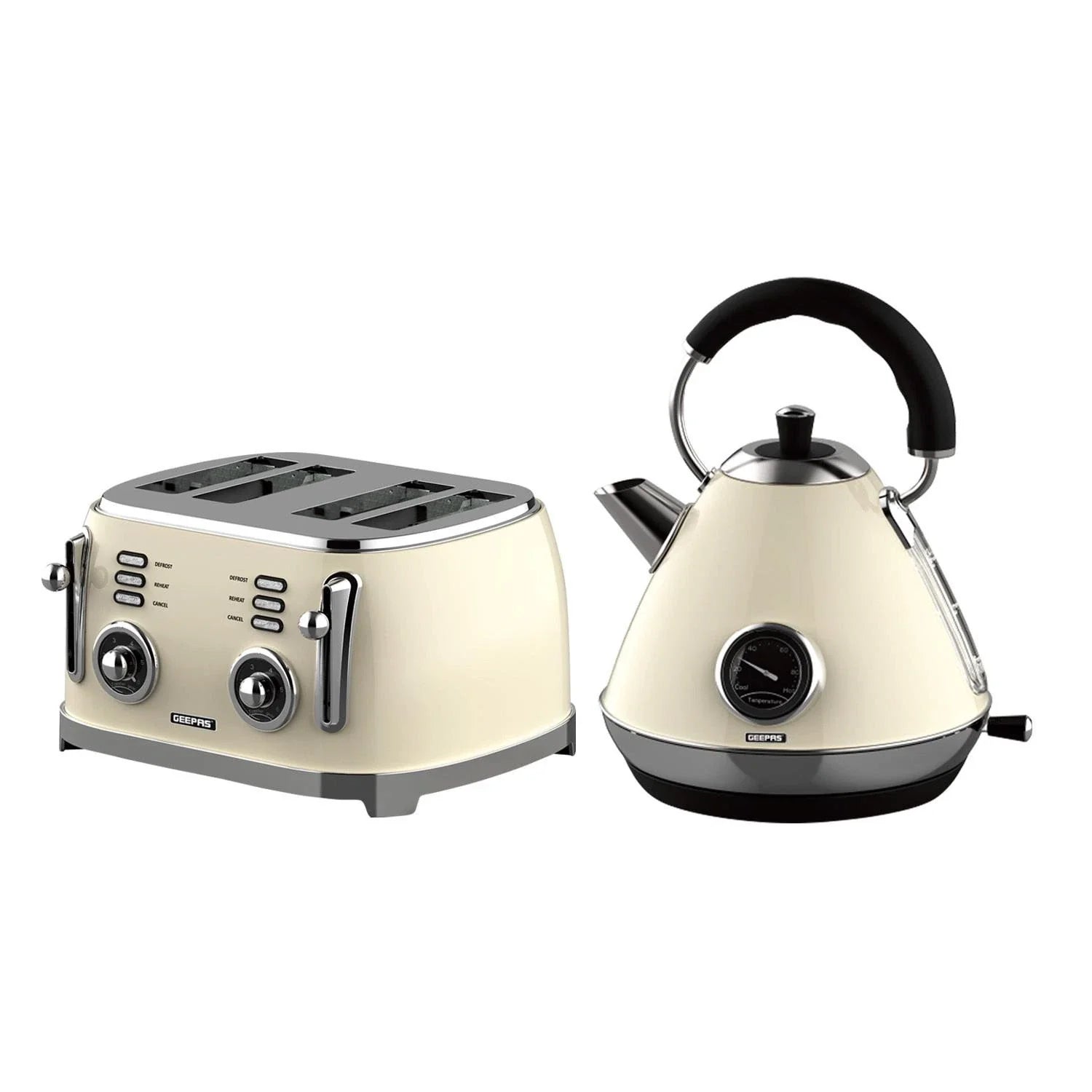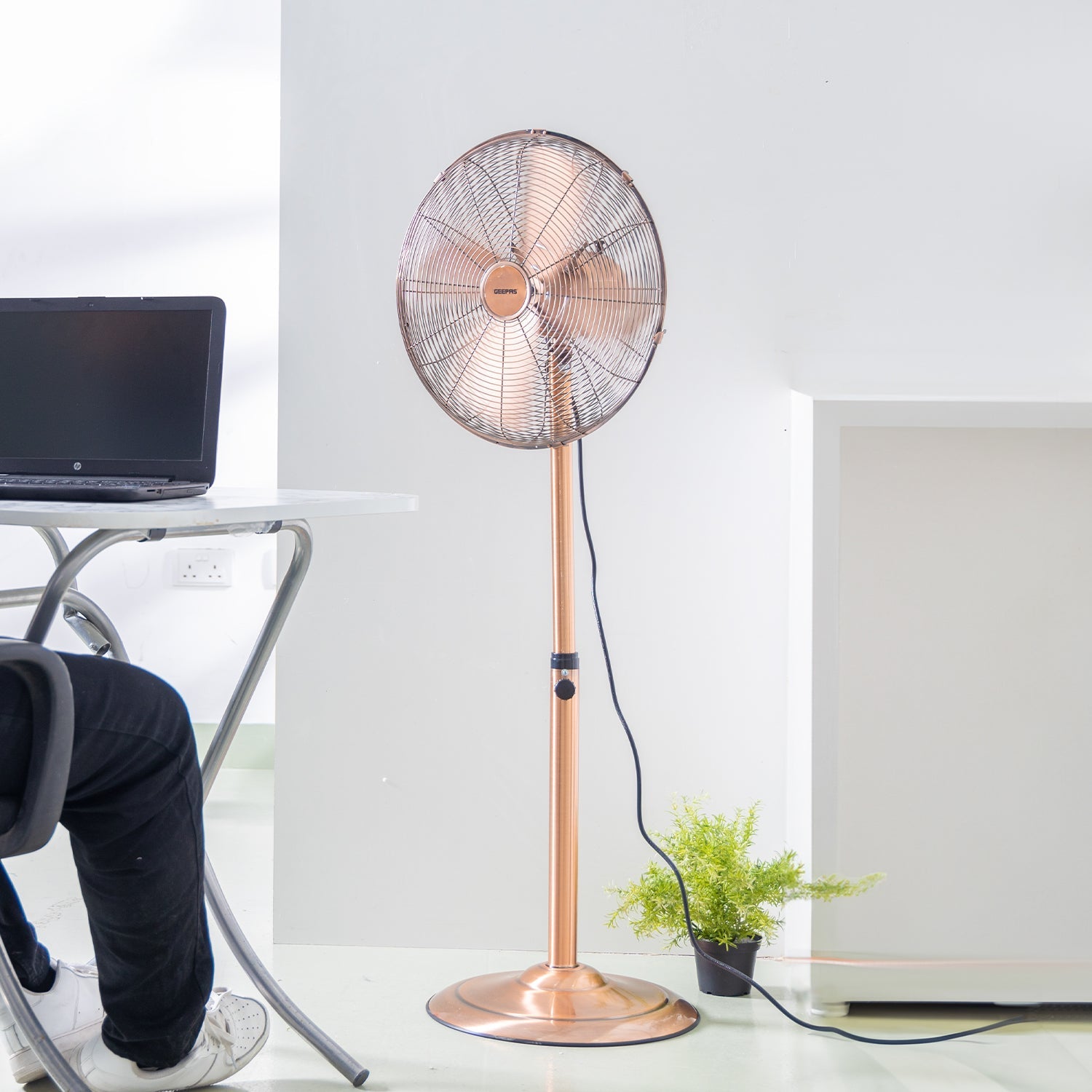As the UK summer brings warmer temperatures, ensuring your home remains a cool and comfortable sanctuary is essential. From battling sticky nights to keeping your living spaces breezy during the day, choosing the right cooling appliance can make all the difference. Beyond just a simple fan, there's a range of effective cooling solutions designed to enhance your indoor comfort.
This comprehensive guide will walk you through the various types of fans and other cooling appliances, their unique benefits, and essential features to help you select the best cooling solution for your specific needs and budget.
Understanding Your Cooling Needs: More Than Just A Breeze
Before diving into options, consider:
- Room Size: Do you need to cool a small bedroom or a large open-plan living room?
- Desired Temperature: Are you looking for a gentle breeze or active temperature reduction?
- Humidity Levels: Is your home prone to dampness or excessive humidity?
- Budget & Energy Consumption: How much are you willing to spend on the appliance and its running costs?
- Noise Level: Crucial if you need quiet cooling for sleeping or working.
The Power Of Airflow: Cooling Fans
Cooling fans are the most popular and energy-efficient choice for beating the heat in the UK. They don't lower the ambient temperature, but they create a refreshing wind-chill effect by moving air across your skin, making you feel cooler. They are excellent for air circulation and improving ventilation.
How They Work: Fans push air, creating a breeze that aids sweat evaporation from your skin, providing a cooling sensation.
Types Of Fans:
- Pedestal Fans: Adjustable height and often oscillating, ideal for circulating air across a larger area.
- Tower Fans: Slim, space-saving design with a vertical oscillation, perfect for modern homes and discreet bedroom cooling.
- Desk Fans: Compact and portable fans for personal cooling in a home office or on a bedside table.
- Floor Fans: Powerful, robust fans designed to move a large volume of air, great for larger rooms or drying.
- Bladeless Fans: Innovative designs that create smooth, consistent airflow without visible blades, often quieter and safer for families.
Pros: Highly energy-efficient (typically 15-100 watts), low running costs, portable, versatile, and great for air circulation.
Cons: Don't reduce the room temperature.
Key Features To Look For: Oscillation, multiple speed settings, quiet operation (look for dB levels below 50dB for bedrooms), remote control, and timer.
Adding Moisture For Cooling: Air Coolers (Evaporative Coolers)
Air coolers, also known as evaporative coolers or "swamp coolers," offer a middle ground between fans and air conditioners.
How They Work: They draw in warm air, pass it over water-soaked pads, and then release cooler, moisture-laden air. The cooling effect comes from the evaporation of water.
Pros: More effective at cooling than a standard fan, eco-friendly cooling (no refrigerants), and lower energy consumption than AC units. It can also dry the air.
Cons: Most effective in hot, dry climates (less so in humid UK conditions, where they can add unwanted moisture), require regular water refills, and may not achieve significant temperature drops.
Best For: Enhancing comfort in moderately warm, drier climates or supplementing fan cooling.
True Temperature Control: Portable Air Conditioners
For active temperature reduction and powerful cooling, a portable air conditioner is the ultimate solution, particularly during heat waves in the UK.
How They Work: These domestic AC units use a refrigerant and compressor system to actively remove heat and humidity from the air, expelling hot air via an exhaust hose (usually through a window kit).
Pros: Provide genuine room cooling and dehumidification, capable of significantly lowering ambient temperatures.
Cons: Higher energy consumption (typically 800-1500 watts, translating to higher running costs), require proper venting to expel hot air, can be noisier than fans, and are less portable due to the hose.
Best For: Bedroom cooling during hot nights, living room cooling, and achieving a comfortable temperature in larger spaces or conservatories where fans aren't enough. Look for BTU ratings (e.g., 7000-12000 BTU for typical UK rooms).
Humidity Control For Enhanced Comfort: Dehumidifiers
While not directly cooling the air, a dehumidifier plays a significant role in making you feel cooler, especially in humid UK summers.
How They Work: They draw in moist air, condense the water vapour, and collect it in a reservoir, releasing drier air back into the room.
Benefits: Reduces the sticky feeling of high humidity, making the ambient temperature feel more comfortable. Helps prevent dampness, mould, and mildew, contributing to a healthier indoor climate.
Best For: Homes prone to dampness, basements, or during very humid summer spells to improve overall comfort. Can be used in conjunction with fans for optimal effect.
Explore The Geepas Fans & Cooling Appliances
Key Features To Look For In Your Cooling Appliance:
When selecting the best cooling solution for your home, keep these features in mind:
- Power & Capacity: Match the appliance's power (watts for fans, BTUs for ACs) to your room size for effective cooling.
- Energy Efficiency: Look for models with high energy efficiency ratings to keep running costs down.
- Noise Level (dB): Crucial for bedroom cooling or home office cooling. A quieter unit (below 50dB) is ideal for undisturbed sleep or concentration.
- Timer Functions: Schedule your appliance to turn on/off, saving energy and ensuring comfort upon arrival.
- Remote Control & Smart Features: For ultimate convenience, Wi-Fi-enabled cooling appliances allow remote control via smartphone apps, integrating into your smart home climate control.
- Oscillation: Ensures wider air distribution.
- Portability: Wheels and lightweight designs make moving your appliance easier.
- Dehumidification Mode: A common feature in portable air conditioners that can be very beneficial.
Maximise Your Summer Comfort & Energy Savings:
Beyond choosing the right cooling appliance, consider these general tips to keep your home comfortable:
- Close Curtains/Blinds: Block out direct sunlight during the hottest parts of the day.
- Ventilate Smartly: Open windows in the evening or early morning when the air is cooler.
- Turn Off Electronics: Unplug devices when not in use, as they generate heat.
Don't let the UK summer catch you off guard. Explore our comprehensive collection of fans and other cooling appliances today and find the best summer cooling solutions to keep your home perfectly comfortable.
Your Cooling Questions Answered: Fans & Cooling Appliances FAQs
Looking to stay cool and comfortable in your home this summer? Here are the most frequently asked questions about fans and other cooling appliances, helping you make the best choice for your UK home.
1. Are Bladeless Fans More Effective Than Traditional Fans?
Bladeless fans often provide a smoother, more consistent airflow compared to traditional fans, and they can be significantly quieter. While they may feel more effective due to their smooth airflow, their actual cooling power (airflow volume) is comparable to a traditional fan of similar size and wattage. Their main advantages lie in their safety, sleek design, and quiet operation.
2. Can I Use A Fan To Cool A Large Room Effectively?
A fan will help to circulate air and create a refreshing breeze in a large room, making you feel cooler. However, as fans don't lower the temperature, they won't "cool down" a large, hot room in the same way an air conditioner would. For effective whole-room cooling in large spaces, especially during heat waves, a portable air conditioner is often more suitable.
3. Do Air Coolers Increase Humidity In A Room?
Yes, air coolers work by evaporating water, which adds moisture to the air. This can be beneficial in very dry climates, but in the often humid UK summer, it might make the air feel stickier if not properly ventilated. For this reason, they are generally less popular in the UK compared to fans or portable air conditioners, which also dehumidify.
4. How Do I Properly Vent A Portable Air Conditioner In A UK Home?
Proper venting is crucial for portable air conditioners to work effectively. You typically vent the hot air out through a window using an included window kit (which seals the gap around the hose). Some models can also be vented through a door or wall. Ensure the exhaust hose is as short and straight as possible to maximise efficiency and prevent hot air from re-entering the room.
5. Are Portable Air Conditioners Very Noisy?
The noise level of portable air conditioners can vary. They are generally louder than fans because they contain a compressor and fan to move air. Noise levels typically range from 50 dB to 65 dB. If noise is a significant concern for bedroom cooling, look for models with lower decibel ratings or specific 'sleep modes'.
6. Can Fans Help With Ventilation & Air Quality?
Yes, fans significantly improve air circulation within a room, which aids in ventilation. By moving air, they can help to distribute fresher air from open windows and push stale air out. While they don't filter the air (like an air purifier), improved air circulation can contribute to a more comfortable and less stuffy indoor climate in your home.









